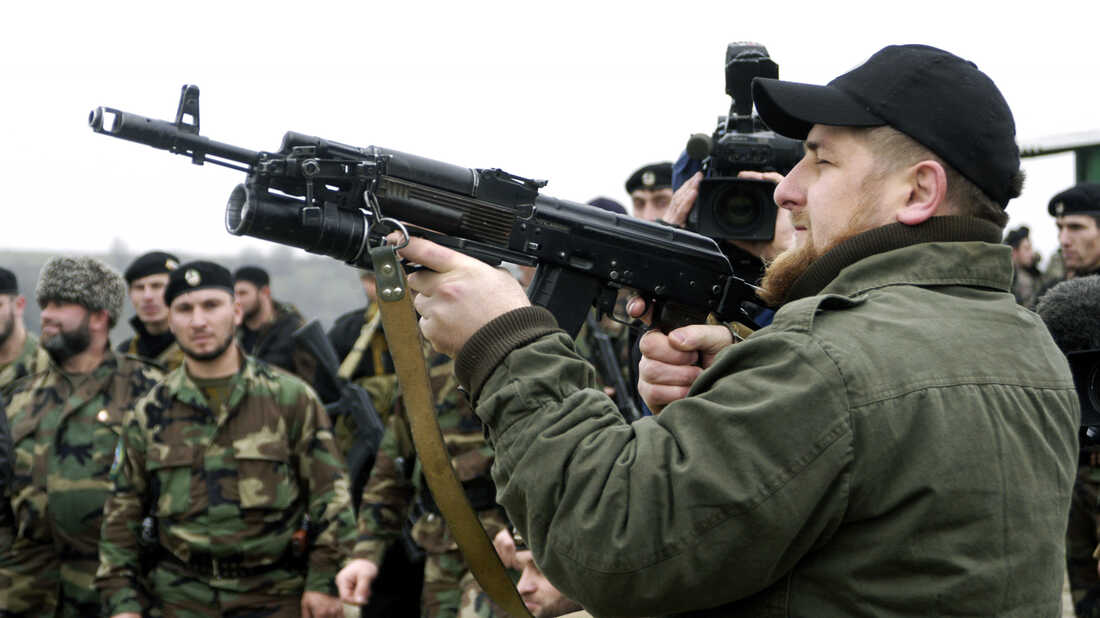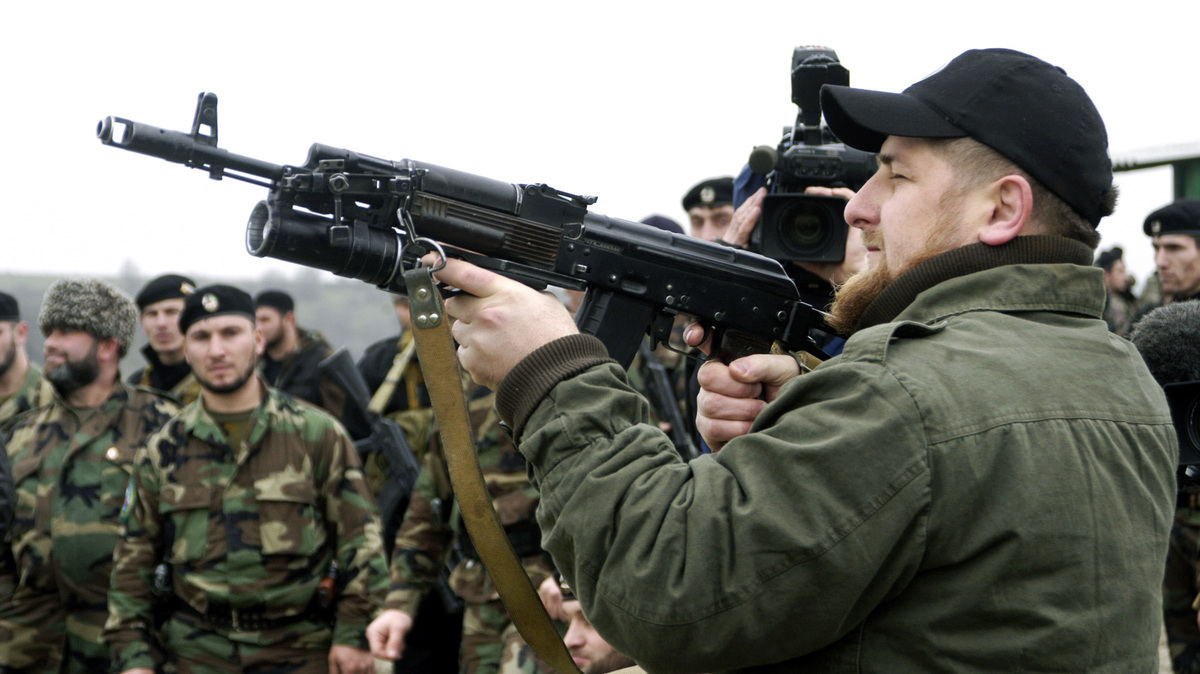
TSENTEROI, CHECHNYA, RUSSIA - NOVEMBER 2005: Ramzan Kadyrov proudly displays his shooting skills at a firing range in his village of Tsentoroi in front of members of his private army. Officially his army are known as the anti-terrorism squad, but everyone refers to its soldiers as Kadyrovtsy - "Kadyrov's guys". (Photo by Kadyrov Press Office/Getty Images) Getty Images/Getty Images hide caption

TSENTEROI, CHECHNYA, RUSSIA - NOVEMBER 2005: Ramzan Kadyrov proudly displays his shooting skills at a firing range in his village of Tsentoroi in front of members of his private army. Officially his army are known as the anti-terrorism squad, but everyone refers to its soldiers as Kadyrovtsy - "Kadyrov's guys". (Photo by Kadyrov Press Office/Getty Images)
Getty Images/Getty ImagesBetween the 1990s and late 2000s, people in Chechnya described Russia's wars there as a nightmare. Its former leader, Akhmad Kadyrov, resisted Russian forces.
But today, the Muslim-majority Chechen Republic is ruled by Kadyrov's son, Ramzan. He's a close ally of Russian President Vladimir Putin, who is accused of numerous human rights abuses and is also leading his own forces against Ukraine to aid the Kremlin.
Rachel Denber, Deputy Director of Human Rights Watch's Europe and Central Asia Division, explains Ramzan Kadyrov's stake in Russia's invasion of Ukraine.
NPR National Security Correspondent Greg Myre, who reported from Chechnya during the wars, also breaks down the republic's evolution over the last 25 years.
Email us at
This episode was produced by Jonaki Mehta. Additional reporting by Sarah McCammon and Connor Donevan. It was edited by Ashley Brown and Christopher Intagliata. Our executive producer is Cara Tallo.

 Live Radio
Live Radio